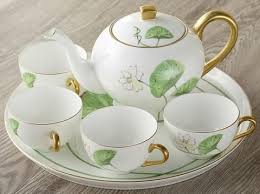Jaina Peveto
Siofra is too soft. She is small, like the quiet kind of mouse you find in children’s picture books. Sometimes, when the day has been long and I’m too tired to think straight, I imagine she might disappear one day. She would just grow fainter and weaker until she’s no longer anything at all.
But I say nothing. It isn’t my business. I’m just her roommate. I’ve never been one to comment on a person’s health, anyway. It’s just always seemed rather rude to me. I wouldn’t want anyone to point out that I haven’t slept, even if I feel the aching exhaustion settle into my bones. How I feel should be my business, and how Siofra is feeling should be hers.
I just make sure to give her a second helping of dinner when I can. It’s not much, but it keeps the subject quiet and it makes me feel like I did something right by helping. It’s a win-win solution, really. Except for the fact that even without my help, Siofra could probably eat a dragon if she didn’t mind the spice. And she still never seems to look any healthier.
I have grown up with jagged edges, but some part of me is gentle enough to worry for my roommate. I do not say anything, but I worry for her health. It seems she’s been handed the short stick in life, the flaming kind that your life is attached to.
But sometimes, there’s something else. Certain mannerisms of hers draw my suspicions away from an innocent sickly girl, and toward something more dangerous.
Sometimes, she speaks of things she should have no knowledge of. Her eyes look far older than the rest of her, which looks even younger than she is. Sometimes she smiles a secret smile, the kind that tells me she knows something. Something she shouldn’t.
I put out my iron-cast skillet and ask her to cook, just to put my suspicions to rest. But each time I do so, she makes an excuse and leaves me to make the meal. She won’t even eat anything made from that skillet, for some odd reason, which makes absolutely no sense because the spices in there are extraordinary.
Unless. Unless I’m right.
Finally, enough is enough. I buy a carton of eggs. And when Siofra asks me what I’m doing, I smile and tell her I’m cooking in an eggshell.
She squints down at it. “Kaida,” she says quietly, “I don’t think there’s enough room in there to cook anything. And aren’t you afraid it might break?”
Hmm. No odd poems. Maybe she isn’t a changeling after all.
—
Kaida is loud and brash, and she speaks like a spitfire. She seems to roar all her words, and she’s always sitting by the fire. She always insists on using this ridiculously spicy cast-iron skillet, and tries to make me cook from it as well. (I refuse. I even more of a rubbish cook than she is.) Her food is always so spicy. It’s ridiculous.
There is something very off about Kaida. I hate to admit it, but she is just a bit terrifying. She switches between hovering over me like a mother hen and squinting at me suspiciously when I so much as cough. It makes me curse my weak immune system more than ever.
I was hoping for a roommate who would leave me be. I have been hovered over for my entire life, and I am tired of it. Kaida is as bright as a searing sunrise, but she’s also as dark as the underside of a pegasus’s wings. I cannot tell whether it is that light or that blackness that scares me more.
After all, what kind of person turns on the heat during the summer? What kind of person hisses back to the snakes in the zoo? What kind of person likes food that burns off the roof of their mouth?
Why is Kaida so claustrophobic? Why does she speak of historical events as though she were alive back then? Why does she have a box of jewels in her room?
Sometimes, when she looks into the distance, if I peer closely, I can see the reflection of something else in her eyes. Something not human. Something serpentlike.
And sometimes, I can’t help but wonder…
But no. It can’t be. Dragons aren’t real, right?
I hiss at her, one day. She blinks, and then scowls.
“Well, that was an incredibly rude thing to say.”
My fork hovers above my plate. “I didn’t say anything, Kaida.”
“Yes, you did,” she insists. She takes a bite of her breakfast. “You called me an overgrown lizard.”
“That’s an oddly specific hiss,” I reply. I lean forward, propping my elbows on the table, though I know it’s incredibly rude of me. “So. You’re a dragon?”
Kaida frowns for a moment, and then laughs. “I suppose the truth is out. And, just to make sure… you’re not a changeling, right? I tried a trick with some eggshells recently, but you didn’t really react…”
I smile. “I think I’ll let you draw your own conclusions.”
